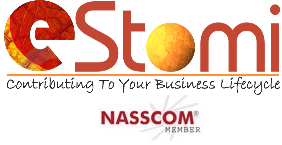Michael Jordan once said “I’ve missed more than 9000 shots in my career. I’ve lost almost 300 games. 26 times, I’ve been trusted to take the game winning shot and missed. I’ve failed over and over and over again in my life. And that is why I succeed.” Let’s talk about performance, persistence, contribution.
Robin Sharma, in his recent webinar, shared that Andre Agassi’s father wanted him to be a great tennis player and hence, he made him to practice 5000 shots every day!
Can you guess what may have happened if Edison would not have tried out those experiments 100 or 1000 times and given up midway?
The construction of Taj Mahal went on for 22 years before it was recognized as a marvel. Imagine what if skilled workers may not have spent time in finishing the project.
Persistence is one word that comes to mind besides relating it with many other success stories. How many failures are we usually prepared to accept before the project/goal/objective gets on to become a success story? In today’s world, I often come across few people who want to give up at the drop of a hat. The folks, who tend to consider short term benefits, always tend to come up with excuses as they prefer to get or keep it all easy way without really putting in enough efforts.
How can we be persistent in what we do? I remember reading a HBR review recently how achieving of goals get impacted due to procrastination. The article explains in very simple way that if we had planned the activities as a part of a goal or objective, we had thought about it as important to be completed in the first place! If not, we would be fooling ourselves by merely writing goals (when, in fact, we should be planning to execute them wisely) and patting on our backs even when we do not complete them (Please, this is not about performance, it is about contribution). Rewarding for achieving goals is one of the ways of keeping one self-motivated. For few, fear of implications for not completing the goals may help, while recognition may be motivating factor for others. I think that if one is truly clear and passionate about it, he will find a way to complete it (rather than finding ways to NOT complete it). I think that one important aspect – TIME is overlooked in such scenarios. Very seldom, people realize that they lose time, which sometimes, add to their frustrations. One of the thoughts from Stephen Hunt – “If you’re not living on the edge you’re taking up too much space.” summarises it all.
I think that we need to constantly try to surpass benchmarking quality of the objectives and plan more ambitious goals. Persistence also gets derived from passion and I believe that it cannot exist without passion. Nike’s ‘Just Do It’ tag line also works wonders when you plan activities for an objective and keep on just doing it. Viktor Frankl very aptly said that we detect rather than invent our missions in life. What a powerful thought!
Sample this… It was July 2011 that we were approached by one of Fortune 500 organizations for an ITSM implementation. We did the demo, sent them the details requested and had followed up several times. Yet, things didn’t move ahead as expected for over 2 years. We kept on sending reminders. We again got into the meetings and a discussion was initiated in August 2013. We continued to sync up, provide requested details to them, revise the efforts as they kept on asking for standard functionality and then considering customizations etc. At one point of time, we managed to get all stake holders and demonstrated the functionality of our tool. By then, we had acquired more expertise and had implemented many of the critical and best practices with different customers. One demo and they were sold on it! Nevertheless, the journey of follow ups continued and our conviction to close on this only increased, after spending so much amount of time and efforts. It was indeed worth it. I feel so good to share that we managed to get the PO rolled out by the same client in Feb 2014. Indeed that also makes us more accountable and responsible to deliver the best quality now that our persistent efforts to convert the prospect to a customer have been paid off.
Take a step back and ask yourselves, ‘What is my PI (Persistence Index) value?’ It should be directly proportional to the contribution. Somehow, I tend to believe that performance needs to be considered only after contribution is demonstrated. For instance, would you prefer to consider Sachin Tendulkar’s century as performance if it has NOT contributed towards winning the cricket match?

Genialt… lige hvad jeg mangler.. Jeg har nemlig samme problem med læbestift… selvom jeg forsøger at vælge nogle der �r28;blødgø2” læberne … sÃ¥ tak – den skal prøves.
Tak, Jodecy 🙂